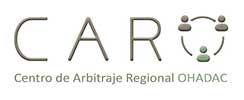





“Truly innovative”
“Excellent initiative”
“Cutting-edge thinking in a vital area”
“Forward thinking”
“An ideal scenery”
Click here for more peer comments
Conflict in large complex infrastructure projects and undertakings is inevitable. For this reason, panels of third-party neutrals, historically referred to as dispute boards, are set up in order to assist project owners and contractors in resolving disputes as they arise, in “real time”. The Conflict Management Committee differs from the traditional dispute board in several key respects including, most especially, the planned participation of Project Stakeholders in Conflict Management Committee proceedings.
The CARO Centre proposes an alternative model of the Dispute Board, a “Conflict Management Committee”. Its' functioning is governed by the OHADAC Conflict Management Committee Rules.
The creation of this service has been undertaken in recognition of a new era in Global Economic, Social and Environmental Development.
In its' 2030 Agenda for Sustainable Development, the United Nations provided a roadmap for the future, incorporating Sustainable Development Goals targeting multiple focus areas including:
Inordinate delays, brought about by contractual issues and stakeholder grievances such as large- scale community protests due to the lack of adequate consultation, proper access to remedy and inclusive follow-up provoke spiralling costs and damage to governments and businesses. The failure to anticipate and effectively address these negative impacts leading to conflict can be avoided and managed.
The OHADAC Conflict Management Committee (“CMC”) Rules offer a procedural framework focused on early project or community issue identification, exploration and resolution.
This innovative framework paves the way for systematically addressing ESG issues, as part of an effective project management plan.
The Centre appoints, in the absence of parties' designation, CMC members best suited to assist each project's stakeholders. The Centre pays particular attention to the balance being sought between Engineering, Contract management and ESG backgrounds.
The Centre is also responsible for the financial management of the CMC mission. CMC members' fees are paid to the Centre by the parties. The Centre then uses these funds to pay CMC Members their fees as they progress in the implementation of their mission.
More generally, the Centre oversees the smooth running of the CMC mission until the project's completion.
We are very grateful for peer comments received from the following distinguished persons:
Phil Bloomer, Executive Director of the Business and Human Rights Resource Center
Effective consultation with communities and workers lies at the heart of a fast and fair transition to clean energy. This report is a significant support to this crucial advance we must make to avert the worst of climate breakdown.
Ian Binnie, Arbitrator, former Justice of the Supreme Court of Canada
The project itself is certainly very worthwhile.
Kai-Uwe Karl, Global Chief Litigation Counsel - GE Renewable Energy
I don't think I have seen anything, which attempts to combine dispute board rules with stakeholder engagement. Truly innovative.
Brian Burkett, counsel to Fasken LLP
Excellent initiative - it expands the role for dispute resolution, proactively, in furtherance of the objectives found in Pillar 3 - Access to Remedy Under the UNGPs (2011).
Michael Pates, Executive Director, Center for Human Rights - American Bar Association
Cutting-edge thinking in a vital area of human-rights and rule-of-law policy development and implementation ... A new opportunity for businesses of all stripes, and the communities with which they engage, to achieve mutually rewarding and sustainable outcomes.
Olivia Windham Stewart, Independent Business and Human Rights Specialist
I believe it has the potential to play an enormously valuable role in the community.
David Hunter, Environmentalist, Law professor at American University in Washington, DC, and author of a treatise on International Environmental Law
The CARO Conflict Management Procedures provide an innovative and inclusive approach to help companies anticipate and resolve disputes, among other things with communities potentially affected by their projects. This provides companies with a better alternative for addressing environmental and social risks of their projects than relying on post-hoc investigations that typically do not provide a meaningful opportunity for affected communities to participate.
Tom O'Keefe, Stanford Law professor
The proposed CARO Conflict Management Committee (CMC) process is timely and forward thinking... By facilitating discussions between investors and potentially impacted communities to achieve a consensual agreement before significant financial commitments are made, the CARO CMC process reduces the risk of huge economic losses when investment activities are disrupted by the rescinding of government authorizations or violent protests by angry stakeholders who feel they were not adequately consulted.
Martijn Scheltema, Prof. Martijn Scheltema Law professor at Erasmus University, Rotterdam and Partner at the legal firm Pels Rijcken (The Hague, Netherlands)
An excellent job.
Maite Parejo Sousa, President of the Humans Rights Observatory of the Madrid Bar Association, Partner at the legal firm Maio Legal in Madrid
“The project is very interesting. It seems to me like an ideal scenery”.
Claude Amar, Senior Mediator (Paris, France), acting in numerous mediations under the auspices of the Hong Kong International Arbitration Centre; the Singapore International Mediation Centre; the Japan International Mediation Centre and the Bali International Arbitration & Mediation Centre
Very well drafted.





